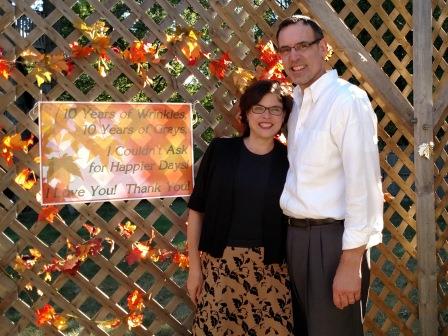Sukkot And The Fragility Of Our Lives

I love Sukkot. I always have. I love the changing leaves, the cool breezes, the connection to nature and even the sense of fragility we face in the sukkah. This year, the fragility was not theoretical. Instead of mornings in the synagogue with my community and afternoons filled with delicious meals with friends and family, I would spend my Sukkot filled with staging tests, scheduling treatments and comforting my young family.
I wondered to myself if sometimes you need a clear sign to truly understand a holiday. I wondered if a cancer diagnosis on my favorite holiday would ruin the celebration forever?
The fragility of life was unmistakable to me that year. Sitting in the sukkah took on a vivid new meaning. But so did my sense of community. It was clear that I would not go through this experience alone. My family, my friends and the greater community stayed by my side. They provided child care, meals, rides, friendship and perhaps best of all, humor. They built a more solid shelter for me than I could have ever hoped for. The year of my cancer diagnosis I truly understood the fragility of life – and I truly understood the meaning of community. Despite Sukkot not going as planned, I learned its lessons well.
Now, each Sukkot that passes seems to be a celebration of life, not a commemoration of diagnosis. I do understand the fragility of our lives, and instead of bemoaning that fragility, I celebrate the strength I had, and the strength I have developed as a result of my cancer experience. I see Sukkot as a personal triumph and welcome it with open arms every year.
